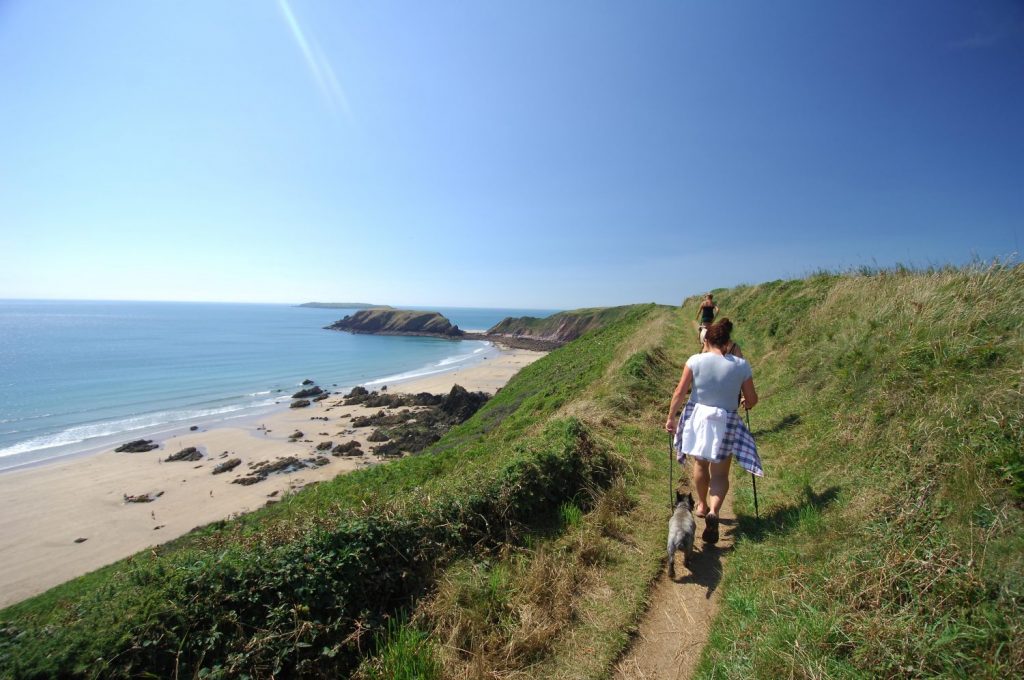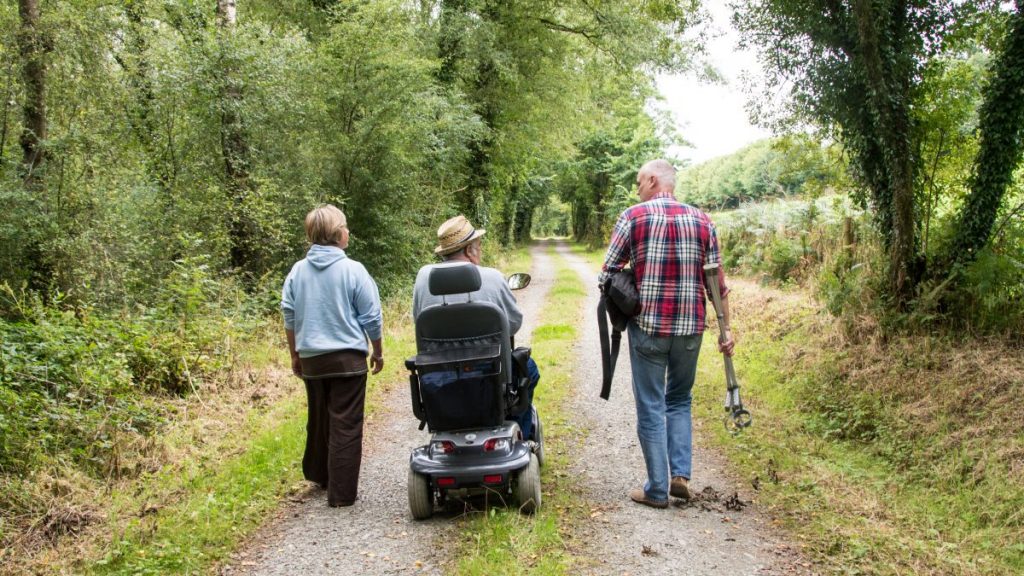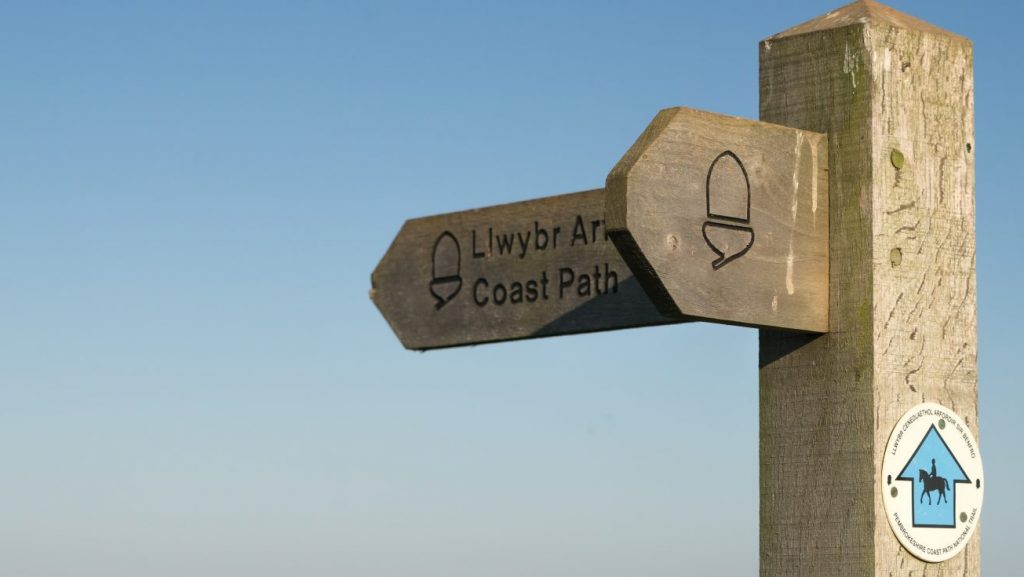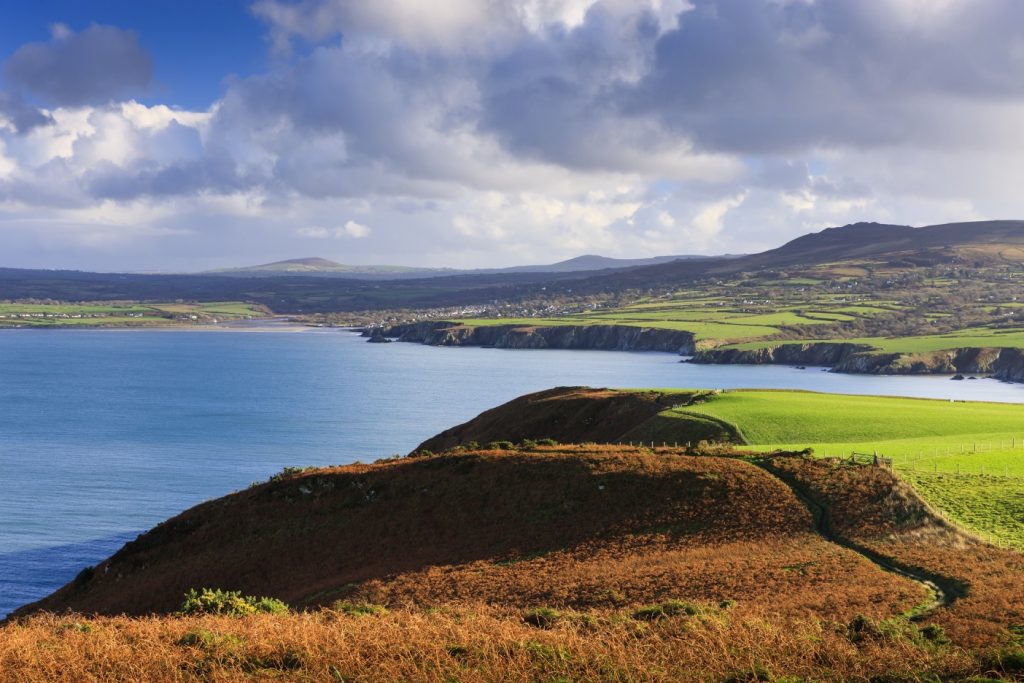DISTANCE/DURATION: 2.25 miles (3.6 km) 1 hour 30 minutes.
PUBLIC TRANSPORT: Service bus Solva 411, *Puffin Shuttle 400 (*seasonal, hail & ride).
CHARACTER: Old Second World War airfield, now reclaimed grassland/heathland.
LOOK OUT FOR: Skylarks and heathland regeneration.
St Davids peninsula is largely flat, a windy plateau dotted with outcrops of tough volcanic rock that resisted the sea when surrounding, softer rocks were eroded away by the sea 70 million years ago and later by Ice Age glaciers.
It is a largely open, treeless landscape where songbirds like skylarks, meadow pipits and stonechats are common and you will often hear the distinctive deep ‘cronk’ call of the raven.
Today St Davids Airfield is a peaceful place. In spring skylarks fill the air with their persistent song and the yellow of flowering gorse adds a dash of colour to the landscape.
During World War Two St Davids Airfield was the scene of constant activity as a RAF Coastal Command base engaged in the Battle of the Atlantic.
The RAF used Pembrokeshire as a base for air operations over the Atlantic, where supply convoys were under constant threat of U-Boat attack.
One of eight airfields in the county, St Davids was opened in the summer of 1943. It had three runways from which bombers were flown on maritime patrols.
Squadrons of Fortress, Halifax and Liberator bombers all flew from the airfield. During the war St Davids was a main base while Brawdy, near Newgale, was its satellite station.
Military aircraft continued to use St Davids until 1960 and it later became a relief landing area.
In the mid 1990s the National Park Authority bought most of the disused airfield and began a major landscaping project to restore and recreate wildlife habitats and safeguard public access and enjoyment.
The remainder of the airfield was returned to farming use. Included in the work was the recreation of an area of lowland wet heathland, something which had not been tried before. The Authority has been helped in the project by the Countryside Council for Wales and the National Trust.
Part of the old airfield is now classed as a Site of Special Scientific Interest (SSSI) and includes heath and wetland of national importance. Footpaths and cycleways cross the former airfield.
In 2002 the National Eisteddfod of Wales was hosted on the site although the Gorsedd Circle – made of stones collected from local farms by volunteers – are the only reminders of this major cultural event.
Find this walk
Grid ref: SM786257
COUNTRY CODE!
- Enjoy the countryside and respect its life and work
- Guard against all risk of fire
- Leave gates and property as you find them
- Keep your dogs under close control
- Keep to public paths across farmland
- Take your litter home



